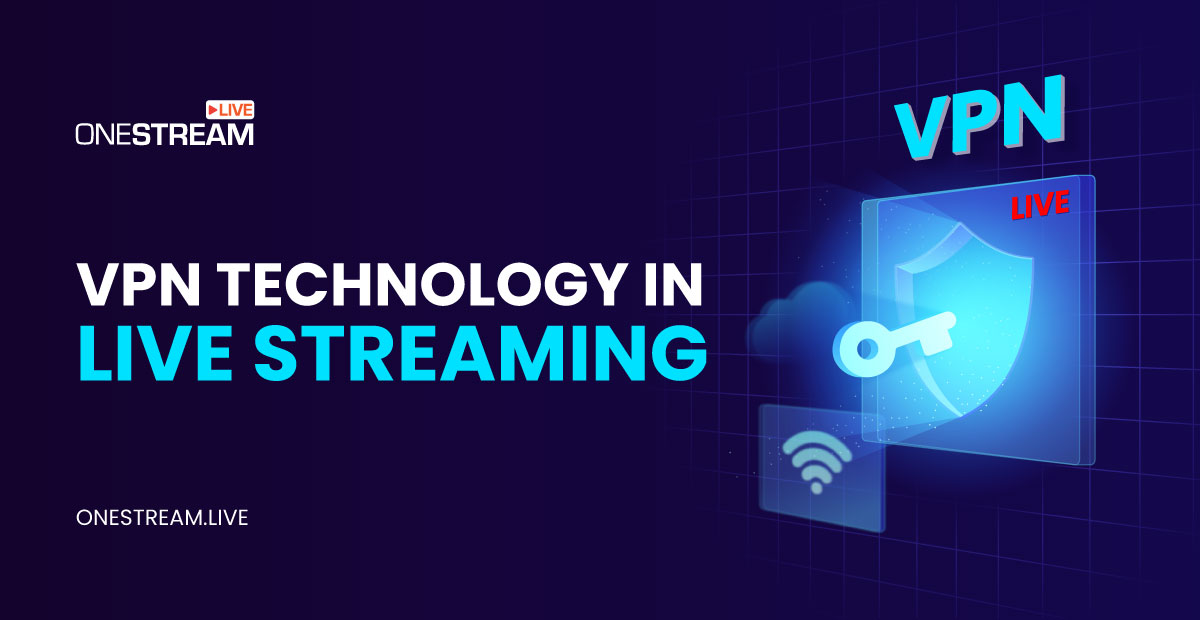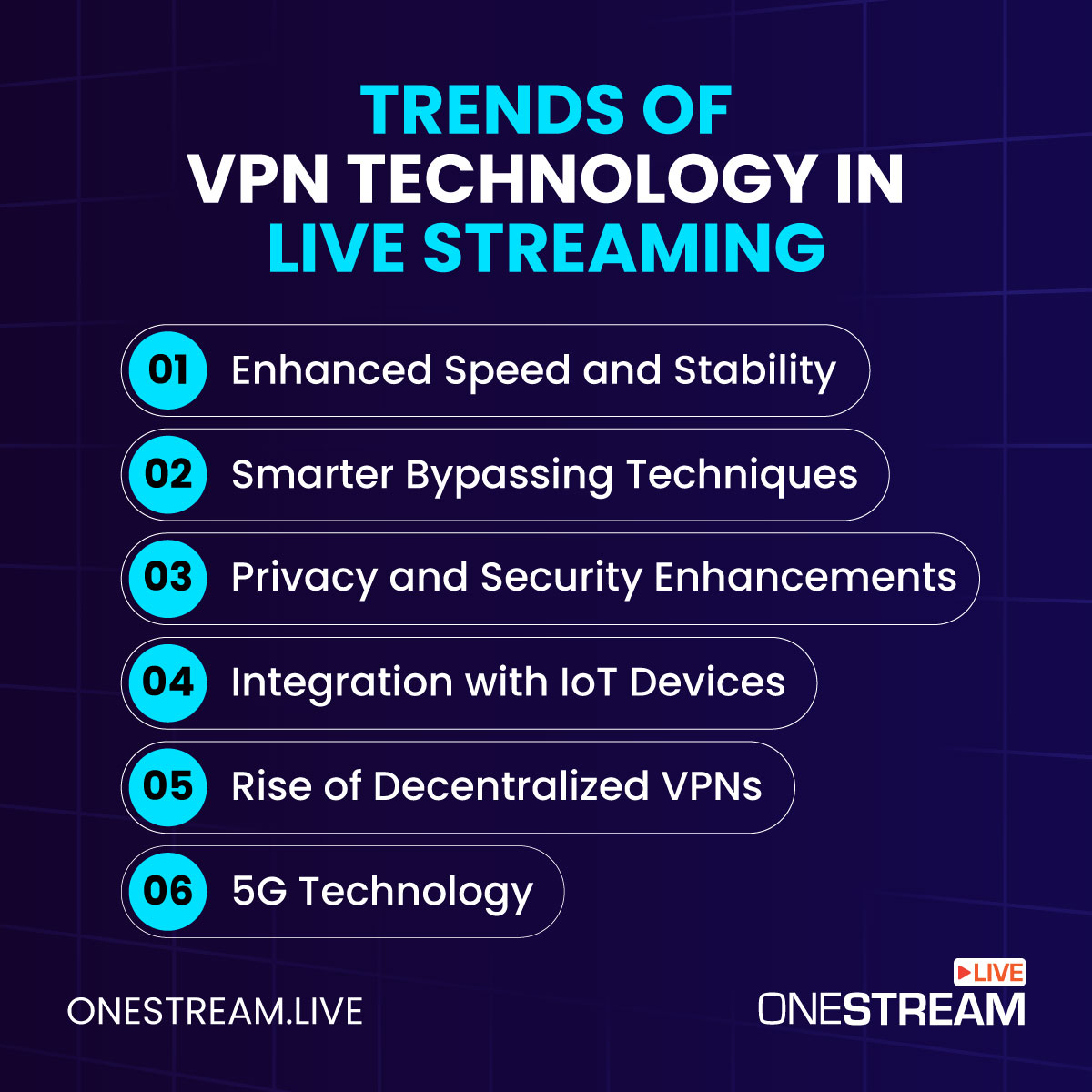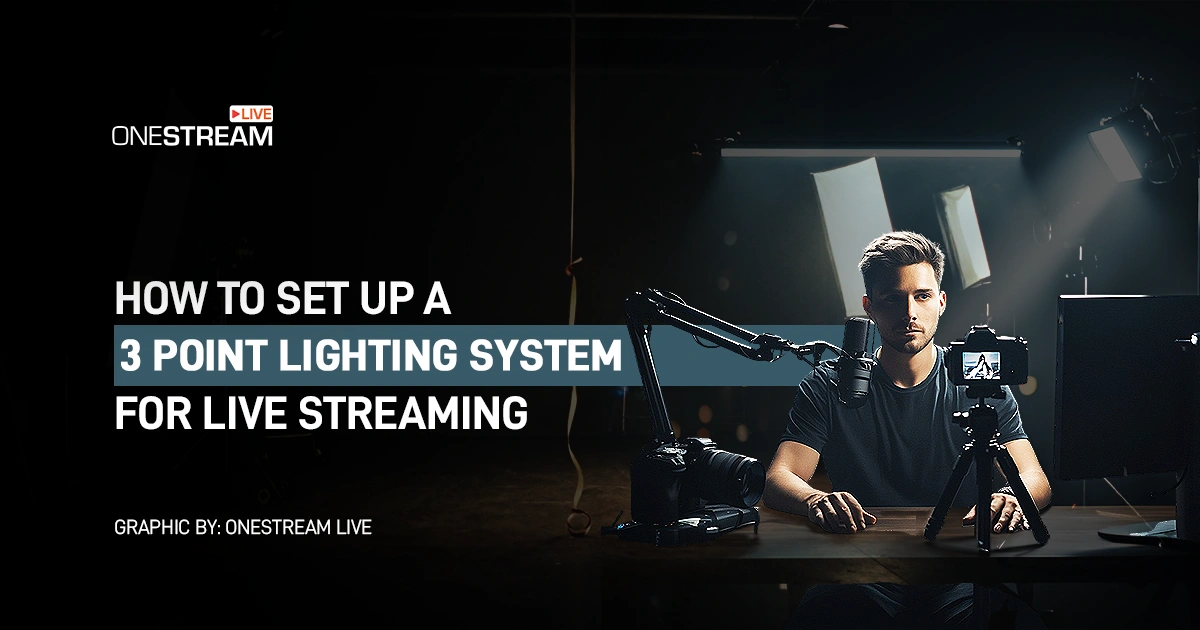Virtual Private Networks (VPNs) have evolved from niche tools for tech enthusiasts to essential tools for securing the best VPN experiences in various online activities, especially live streaming. As the demand for high-quality, unrestricted content access grows, users increasingly rely on the best VPN solutions for seamless, secure viewing.
Let’s explore the trends shaping the future of VPN technology in the live streaming industry.
The Evolution of Streaming Demands
The live streaming market is booming. According to Grand View Research, the global video streaming market is expected to reach $330.51 billion by 2030, growing at a compound annual growth rate (CAGR) of 21.3% from 2023 to 2030. This growth is driven by consumer demand for instant access to live events, sports, gaming, and entertainment.
With this surge, users expect high-quality streams without buffering. A critical challenge is geo-restrictions, which limit access to content based on location. Best VPNs are stepping in to address these barriers by masking user IPs and granting access to otherwise restricted content.
But the story doesn’t end there. Streaming platforms are getting smarter about blocking VPN traffic. This cat-and-mouse game pushes VPN providers to innovate constantly, ensuring uninterrupted access for users relying on a fast and secure VPN service.
Best VPN Trends for Live Streaming to Watch Out
1: Enhanced Speed and Stability
Buffering is the bane of every live streaming enthusiast. Speed is a top priority for both VPN providers and users. The future of VPNs in live streaming will hinge on enhanced protocols like WireGuard, which offers superior speed and security compared to older protocols like OpenVPN.
Another innovation is VPN server optimization. Best VPN providers are deploying servers specifically tailored for streaming, reducing latency and improving bandwidth allocation. This ensures that even high-definition and 4K streams run smoothly with the best VPN.
Edge computing is another game-changer. By processing data closer to the user, edge computing reduces the lag inherent in traditional server-client models. This can significantly enhance the streaming experience when combined with advanced VPN services.
2: Smarter Bypassing Techniques
Content providers are getting better at detecting and blocking VPNs. Advanced techniques like deep packet inspection (DPI) allow platforms to identify VPN traffic, making it harder for users to access restricted content.
In response, the best VPNs are becoming smarter. Obfuscation technology disguises VPN traffic to make it appear as regular internet usage. This technique is particularly useful in regions with heavy censorship, ensuring uninterrupted access to live streams.
AI-powered VPNs are another trend. Machine learning algorithms help VPNs adapt in real time to bypass new detection methods employed by streaming platforms. This dynamic approach ensures users can continue to enjoy their favorite content without interruptions.
Also Read Why Do VPNs Face Restrictions in Some Parts of the World?
3: Privacy and Security Enhancements
Privacy remains a cornerstone of VPN technology. However, as cyber threats evolve, so must the security features of the best VPNs. This is especially critical for live streaming, where users may inadvertently expose sensitive data.
Next-generation encryption methods, such as quantum-resistant algorithms, are on the horizon. These will offer unparalleled security, safeguarding users from potential breaches.
Additionally, zero-log policies are becoming standard across the best VPN providers. This ensures that no user data is stored, giving peace of mind to those concerned about their online footprint.
Multi-factor authentication (MFA) is also making its way into the best VPNs. By requiring additional verification steps, MFA adds an extra layer of security, making it harder for unauthorized parties to access user accounts.
Also Check Out Mastering Streaming Security: A Guide to Keeping Your Streams Safe and Connected
4: Integration with IoT Devices
The Internet of Things (IoT) is revolutionizing how we consume content. From smart TVs to gaming consoles, live streaming is no longer confined to laptops and smartphones.
The best VPNs are adapting by offering dedicated apps and firmware for IoT devices. This ensures seamless streaming experiences across all platforms, regardless of the device being used.
Moreover, as IoT devices become more common, they also become targets for cyberattacks. VPNs play a crucial role in securing these devices, encrypting traffic and preventing unauthorized access.
5: Rise of Decentralized VPNs
Traditional VPNs rely on centralized servers, which can become bottlenecks during peak usage. Decentralized VPNs (dVPNs) are emerging as a solution to this problem.
Built on blockchain technology, dVPNs distribute traffic across a network of nodes, eliminating reliance on a single server. This not only enhances speed and reliability but also boosts privacy by making it nearly impossible to trace user activity.
6: VPNs and 5G Technology
The rollout of 5G networks is transforming live streaming. With its ultra-low latency and high-speed connectivity, 5G enables flawless live streaming experiences, even in high-definition formats.
Best VPN providers are optimizing their services for 5G networks. By using 5G’s capabilities, the best VPNs can offer faster connections and reduced latency, making them ideal for live streaming.
Future Pricing Models of the Best VPNs
As competition intensifies, the best VPN providers are exploring new pricing models to attract and retain users. Subscription bundles that include VPNs with streaming services are gaining popularity. These offer convenience and cost savings, appealing to budget-conscious consumers.
Freemium models are also evolving. While basic VPN features remain free, premium tiers offer enhanced streaming capabilities, such as dedicated servers and higher speeds. This tiered approach allows users to choose services that best fit their needs.
Lifetime subscriptions are another emerging trend. By offering one-time payment options, VPN providers cater to users looking for long-term solutions without recurring costs.
Final Words
The future of VPN technology in live streaming is bright, driven by innovation and user demand. Enhanced speed, smarter bypassing techniques, improved security, and integration with emerging technologies like IoT and 5G are setting the stage for a seamless streaming experience.
As best VPN providers continue to adapt to challenges such as content restrictions and cyber threats, users can look forward to more reliable, secure, and accessible live streaming options. The next decade promises exciting developments, ensuring that the world of live streaming remains unrestricted and enjoyable for all.
OneStream Live is a cloud-based live streaming solution to create, schedule, and multistream professional-looking live streams across 45+ social media platforms and the web simultaneously. For content-related queries and feedback, write to us at [email protected]. You’re also welcome to Write for Us!










